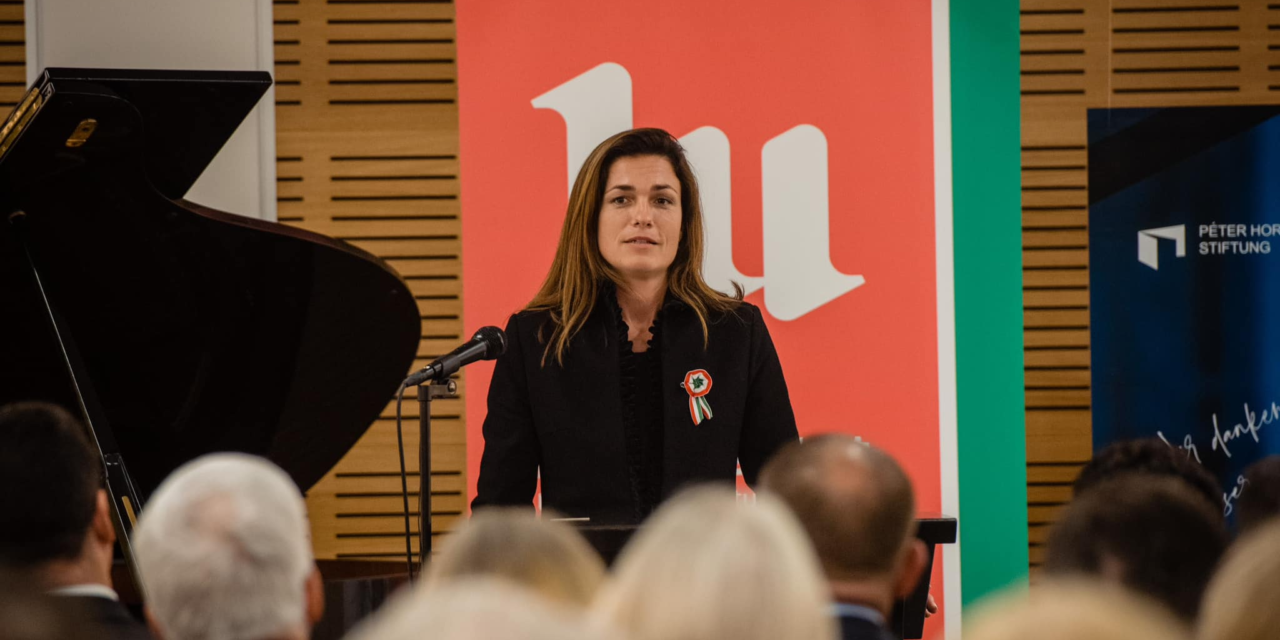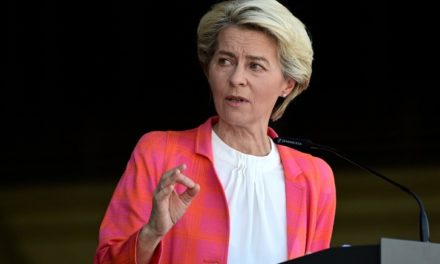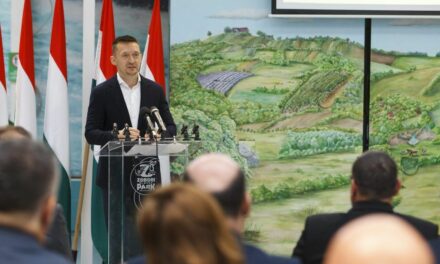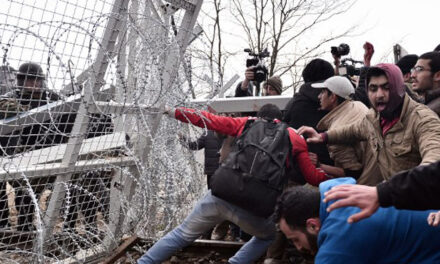The nation's desire for freedom cannot be suppressed in any country, said Justice Minister Judit Varga on Friday on the occasion of the 66th anniversary of the 1956 revolution and freedom struggle in Stuttgart, Germany, at the Liszt Institute - Hungarian Cultural Center.
At a ceremony organized by the Hungarian Consulate General operating in the regional capital of Baden-Württemberg, the minister emphasized that the Hungarian revolution, the preceding 1953 workers' uprising in East Berlin, the Prague Spring of 1968, and later the protest movements of the independent Polish trade union federation Solidarity they were all stages of the freedom movement of the peoples of Central and Eastern Europe, which led to the fall of the Berlin Wall in 1989, and then to German reunification a year later.
All of this "with 1956 at the forefront proves that the nation's desire for freedom cannot be suppressed in any country", underlined Judit Varga, adding that "although the revolution was drowned in blood, they could not break our national self-respect".
As he said, in 1956, the Hungarian people "gathered enormous strength and shook the pillars of communist power."
The revolution was "truly the revolution of a people, the revolution of the Hungarian people", in which "the cardinal and the turner, the academics and the guy from Pest wanted the same", because "everyone was touched by the feeling of freedom, which penetrated even the iron curtain separating the parts of the nation".
Hungarians have learned throughout our history that "freedom is never given for free", 1,100 years of history "burned it into our DNA that we have to fight every day, again and again", he pointed out, pointing out that the Soviet tanks trampled the freedom struggle, the revolution still won, "only decades later, in 1989, when the Hungarians shook off the shackles of communism with a peaceful and constitutional revolution".
The Hungarians also contributed greatly to the German reunification, so "we can proudly say that we are the ones who defeated world communism in 1956, and we are the ones who knocked out the first brick from the Berlin Wall," said Judit Varga of the Baden-Württemberg Provincial at a commemoration held with the participation of the government's Minister of Justice and Migration, Marion Gentges.
He emphasized that after the system change, Hungarian-German relations gained new momentum, and that "the Hungarian government's unwavering goal is that the Hungarian-German economic cooperation, which has so far been a success story, not only survives but also strengthens in the future".
"Hungarian-German social, economic and political cooperation is more important than ever these days, when we are living in a decade of dangers", since "Europe is facing challenges today that make cooperation between EU member states based on mutual respect even more important than before" said Judit Varga.
He emphasized: during the peaceful decades, "we thought that physical conflicts were out of date", but life proved that "war, the real armed conflict, is the 21st century." became part of the history of Europe in the 20th century".
Regarding Russia's war against Ukraine, he stated that "Hungary condemns the aggression and stands up for Ukraine's sovereignty and territorial integrity in all international forums", while at the same time "it is committed to peace: we urge an immediate ceasefire and immediate peace negotiations, since peace is the only solution to the crisis ".
He added: "we primarily look at Hungarian interests, and - in addition to urging a peaceful settlement as soon as possible - we do not support sanctions that hurt Europe, including Hungary, more than the aggressor".
"Looking at the events of today, we know very well that protecting national sovereignty and freedom is our daily task and the responsibility of all of us. The guys from Pest ensured the future for us. Now it is our joint responsibility to leave a safe, strong, livable and independent Hungary and a strong Europe to the younger generation," said Judit Varga in Stuttgart.
Source: MTI













